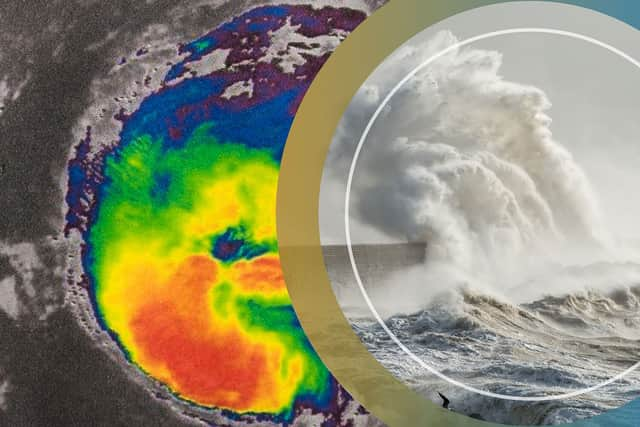Climate change: increased risk of extreme weather as world’s ocean surface temperature hits all-time high
and live on Freeview channel 276
The average temperature of the world’s ocean surface has hit an all-time high “smashing previous records” and leading to marine heatwaves around the globe, according to US government data.
Climate scientists said preliminary data from the National Oceanic and Atmospheric Administration (Noaa) showed the average temperature at the ocean’s surface has been at 21.1C since the start of April – beating the previous high of 21C set in 2016.
Advertisement
Hide AdAdvertisement
Hide AdThere have been three years of La Niña conditions across the vast tropical Pacific which has helped to suppress temperatures and dampen the effect of rising greenhouse gas emissions.
But scientists said heat was now rising to the ocean surface, pointing to a potential El Niño pattern in the tropical Pacific later this year which could increase the risk of extreme weather conditions and further challenge global heat records.
A La Niña year sees episodes of cooler than average sea surface temperature in the equatorial Pacific causing colder, drier than average weather. By comparison, El Niño is declared when sea temperatures in the tropical eastern Pacific rise 0.5C above the long-term average causing weather to be warmer than average.
Dr Mike McPhaden, a senior research scientist at Noaa, told the Guardian: “The recent ‘triple dip’ La Niña has come to an end. This prolonged period of cold was tamping down global mean surface temperatures despite the rise of greenhouse gases in the atmosphere.
Advertisement
Hide AdAdvertisement
Hide Ad“Now that it’s over, we are likely seeing the climate change signal coming through loud and clear.”


‘Headed off the charts’
According to the Noaa data, the second-hottest globally averaged ocean temperatures coincided with El Niño that ran from 2014 to 2016.
Prof Matthew England, a climate scientist at the University of New South Wales, said that the “current trajectory looks like it’s headed off the charts” and is “smashing previous records”.
The data is driven mostly by satellite observations but also verified with measurements from ships and buoys - it does not include the polar regions.
Advertisement
Hide AdAdvertisement
Hide AdMore than 90% of the extra heat caused by adding greenhouse gases to the atmosphere from burning fossil fuels and deforestation has been taken up by the ocean.
Professor England, a co-author of that study, said: “What we are seeing now [with the record sea surface temperatures] is the emergence of a warming signal that more clearly reveals the footprint of our increased interference with the climate system.”
Dr Kevin Trenberth, a climate scientist and distinguished scholar at the US National Center for Atmospheric Research, said observations showed the heat in the tropical Pacific was extending down to more than 100 metres which will have knock-on effects for the atmosphere above. He said it will create more heat, adding energy to weather systems and causing marine heatwaves.
Current observations show moderate to strong marine heatwaves in several regions, including the southern Indian Ocean, the south Atlantic, off north-west Africa, around New Zealand, off the north-east of Australia and the west of Central America.
Advertisement
Hide AdAdvertisement
Hide AdMarine heatwaves can be driven by local weather conditions but studies have shown they have increased in frequency and intensity as the oceans have warmed – a trend which is forecast to worsen with human-caused global heating.
Hotter oceans provide more energy for storms, as well as putting ice sheets at risk and pushing up global sea levels. Marine heatwaves can also have devastating effects on marine wildlife and cause coral bleaching on tropical reefs.
Comment Guidelines
National World encourages reader discussion on our stories. User feedback, insights and back-and-forth exchanges add a rich layer of context to reporting. Please review our Community Guidelines before commenting.
